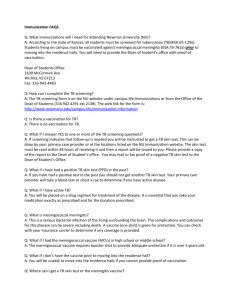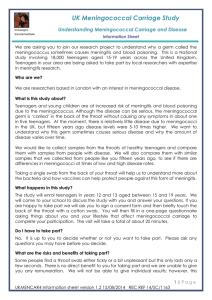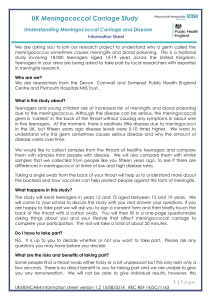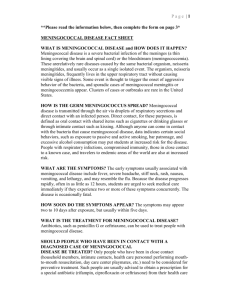SAILING TO GOOD HEALTH - School District of Holmen
advertisement
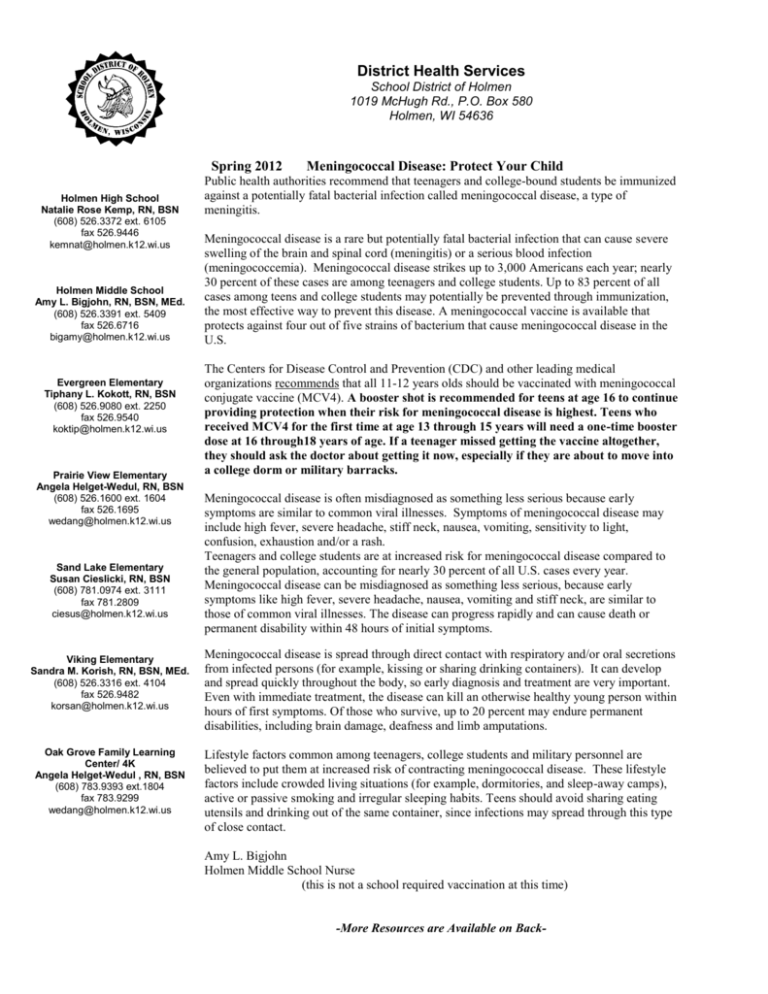
District Health Services School District of Holmen 1019 McHugh Rd., P.O. Box 580 Holmen, WI 54636 Spring 2012 Holmen High School Natalie Rose Kemp, RN, BSN (608) 526.3372 ext. 6105 fax 526.9446 kemnat@holmen.k12.wi.us Holmen Middle School Amy L. Bigjohn, RN, BSN, MEd. (608) 526.3391 ext. 5409 fax 526.6716 bigamy@holmen.k12.wi.us Evergreen Elementary Tiphany L. Kokott, RN, BSN (608) 526.9080 ext. 2250 fax 526.9540 koktip@holmen.k12.wi.us Prairie View Elementary Angela Helget-Wedul, RN, BSN (608) 526.1600 ext. 1604 fax 526.1695 wedang@holmen.k12.wi.us Sand Lake Elementary Susan Cieslicki, RN, BSN (608) 781.0974 ext. 3111 fax 781.2809 ciesus@holmen.k12.wi.us Viking Elementary Sandra M. Korish, RN, BSN, MEd. (608) 526.3316 ext. 4104 fax 526.9482 korsan@holmen.k12.wi.us Oak Grove Family Learning Center/ 4K Angela Helget-Wedul , RN, BSN (608) 783.9393 ext.1804 fax 783.9299 wedang@holmen.k12.wi.us Meningococcal Disease: Protect Your Child Public health authorities recommend that teenagers and college-bound students be immunized against a potentially fatal bacterial infection called meningococcal disease, a type of meningitis. Meningococcal disease is a rare but potentially fatal bacterial infection that can cause severe swelling of the brain and spinal cord (meningitis) or a serious blood infection (meningococcemia). Meningococcal disease strikes up to 3,000 Americans each year; nearly 30 percent of these cases are among teenagers and college students. Up to 83 percent of all cases among teens and college students may potentially be prevented through immunization, the most effective way to prevent this disease. A meningococcal vaccine is available that protects against four out of five strains of bacterium that cause meningococcal disease in the U.S. The Centers for Disease Control and Prevention (CDC) and other leading medical organizations recommends that all 11-12 years olds should be vaccinated with meningococcal conjugate vaccine (MCV4). A booster shot is recommended for teens at age 16 to continue providing protection when their risk for meningococcal disease is highest. Teens who received MCV4 for the first time at age 13 through 15 years will need a one-time booster dose at 16 through18 years of age. If a teenager missed getting the vaccine altogether, they should ask the doctor about getting it now, especially if they are about to move into a college dorm or military barracks. Meningococcal disease is often misdiagnosed as something less serious because early symptoms are similar to common viral illnesses. Symptoms of meningococcal disease may include high fever, severe headache, stiff neck, nausea, vomiting, sensitivity to light, confusion, exhaustion and/or a rash. Teenagers and college students are at increased risk for meningococcal disease compared to the general population, accounting for nearly 30 percent of all U.S. cases every year. Meningococcal disease can be misdiagnosed as something less serious, because early symptoms like high fever, severe headache, nausea, vomiting and stiff neck, are similar to those of common viral illnesses. The disease can progress rapidly and can cause death or permanent disability within 48 hours of initial symptoms. Meningococcal disease is spread through direct contact with respiratory and/or oral secretions from infected persons (for example, kissing or sharing drinking containers). It can develop and spread quickly throughout the body, so early diagnosis and treatment are very important. Even with immediate treatment, the disease can kill an otherwise healthy young person within hours of first symptoms. Of those who survive, up to 20 percent may endure permanent disabilities, including brain damage, deafness and limb amputations. Lifestyle factors common among teenagers, college students and military personnel are believed to put them at increased risk of contracting meningococcal disease. These lifestyle factors include crowded living situations (for example, dormitories, and sleep-away camps), active or passive smoking and irregular sleeping habits. Teens should avoid sharing eating utensils and drinking out of the same container, since infections may spread through this type of close contact. Amy L. Bigjohn Holmen Middle School Nurse (this is not a school required vaccination at this time) -More Resources are Available on Back- More Resources about Meningococcal Disease: To learn more about meningococcal disease, vaccine information, and public health resources visit the following web sites. From the: Center for Disease Control and Prevention General information regarding meningitis disease A Meningitis Fact Sheet American Committee of Immunization Practice recommendations for Prevention and Control of Meningitis (2005) http://www.cdc.gov/mmwr/preview/mmwrhtml/rr5407a1.htm Updated recommendations for the use of Meningococcal Conjugate Vaccines (2010) is available at: http://www.cdc.gov/mmwr/preview/mmwrhtml/mm6003a3.htm?s_cid=mm6003a3_e National Association of School Nurses – Voices of Meningitis (http://www.nasn.org/ToolsResources/Immunizations/VoicesofMeningitisChallenge) La Crosse County Public Health Department: 608.785.9723/http://www.co.lacrosse.wi.us/health/publichealth/ Meningitis Foundation of America National Meningitis Association American Academy of Family Physicians American Academy of Pediatrics
